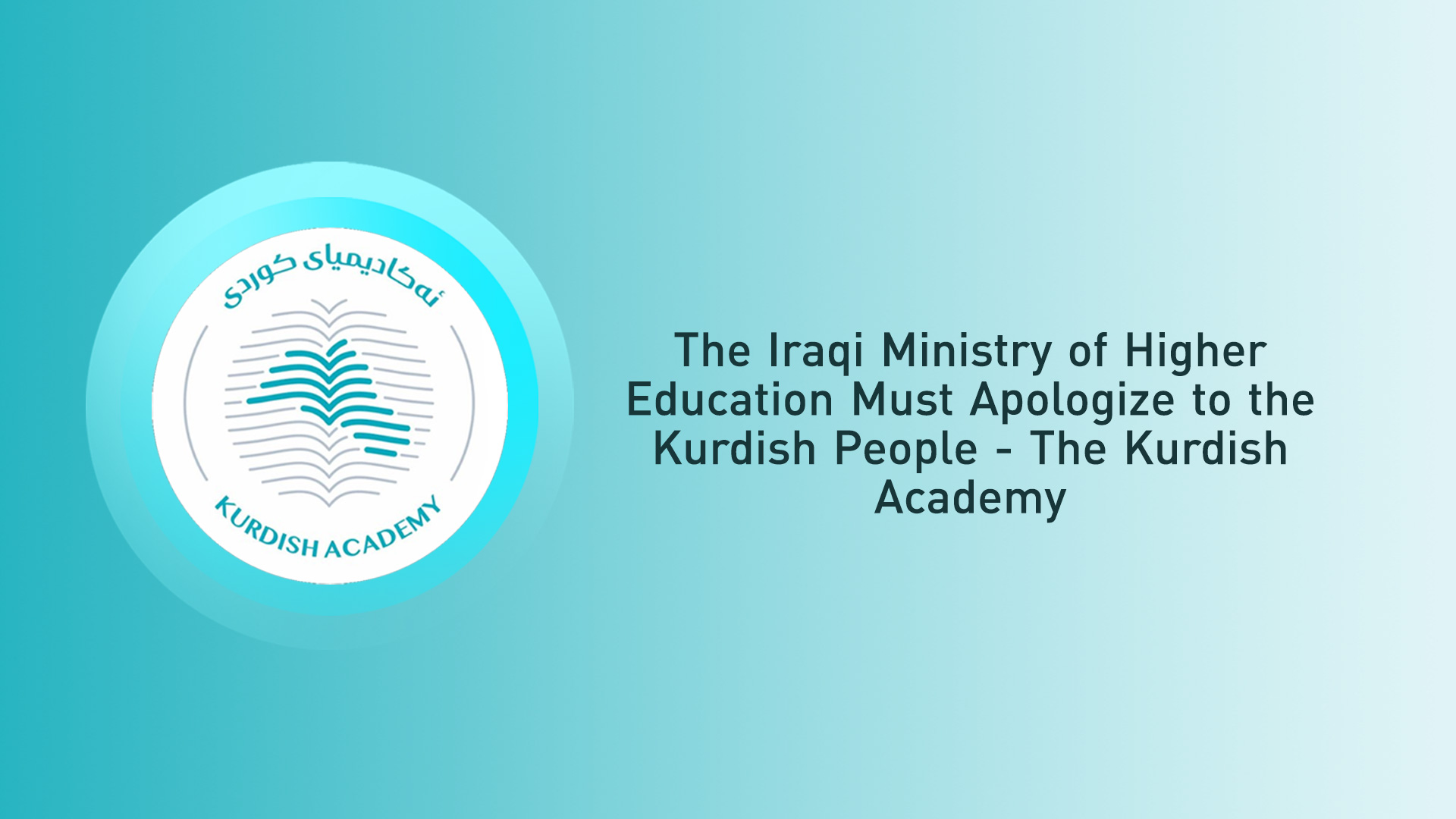Kurdish Academy Demands Reversal of 'Unconstitutional' University Language Ban
The Kurdish Academy condemns a 'racist' Iraqi ministry decision banning the Kurdish language in university exams in Kurdistani territories, calling it unconstitutional. The Academy demands an immediate reversal and an apology, a sentiment echoed by Iraqi MPs who vow to fight the directive.

ERBIL (Kurdistan24) — The Kurdish Academy, the highest linguistic authority in the Kurdistan Region, has issued a powerful and unequivocal condemnation of a recent Iraqi federal government directive banning the use of the Kurdish language in universities in Kurdish areas outside the KRG’s administrative control, labeling the move a “racist decision” and demanding its immediate reversal along with a formal apology to the Kurdish people.
In a formal statement, the Academy made its position clear: “We condemn Decision No. 6496 of the Iraqi Ministry of Higher Education, issued on July 16, 2025, which has banned the Kurdish language in the higher education institutions of the Kurdish areas outside the administration of the Kurdistan Region. We consider this a racist decision and demand that this illegal and unconstitutional decision be rescinded as soon as possible, and that the Iraqi Ministry of Higher Education apologize to the Kurdish people.”
The Academy’s strong denunciation comes in response to a move that directly challenges the constitutional status of the Kurdish language in Iraq. According to an official letter from the Ministry of Higher Education in Baghdad, the universities of Kirkuk, Mosul, and Diyala have been formally notified of a policy reversal that cancels a provision first established in 2010. That long-standing rule had permitted Kurdish-speaking students to answer exam questions in their native tongue, with the answers to be subsequently translated for grading.
The new letter leaves no room for ambiguity, reiterating that the previous decision is now void and threatening that any university failing to comply will be penalized and face legal action from the federal government.
This policy change has ignited serious concerns as it stands in direct opposition to the foundational legal framework of the modern Iraqi state. The Iraqi Constitution, ratified in 2005, is unequivocal in Article 4, which states: "The Arabic language and the Kurdish language are the two official languages of Iraq." The constitution further guarantees the right of Iraqis to educate their children in their mother tongue in government institutions and requires the use of both languages in federal institutions on a basis of equality. The ministry's directive is therefore widely seen as a violation of both the spirit and the letter of this article.
The reversal is seen not just as a new restriction, but as a regression from a practical accommodation that has been in place for years, providing a necessary bridge for students from the Kurdish education system who were pursuing higher education in federal universities.
The targeting of universities in Kirkuk, Mosul, and Diyala is particularly significant. These provinces are all part of the "Kurdistani territories" as defined under Article 140 of the constitution—areas with mixed populations whose final administrative status remains unresolved. Forcing Kurdish students in these politically sensitive regions, who often complete their primary and secondary education in Kurdish, to take complex university exams in Arabic places them at a severe disadvantage and is viewed by critics as a potential tool to marginalize Kurdish cultural identity.
The outcry from the Kurdish Academy is echoed in the Iraqi Parliament, where MP Dr. Nahla Qadir Muhammad Al-Afandi issued her own powerful condemnation, labeling the decision a "blatant violation of the constitution" and vowing to take a "strong stance" that could include legal action.
In a formal statement, Dr. al-Afandi's office announced its complete rejection of the order. Her office’s statement argued that the ministry’s claim that education should be "only in the Arabic and English languages" is completely contrary to Article 4 of the constitution. "No one can violate a right that the constitution has given to the people and which the peoples of Iraq have voted for," the statement asserted.
Dr. al-Afandi’s office also noted that the constitution’s linguistic protections extend to Turkmen, Syriac, and Armenians, underscoring the broader negative implications of the ministry's restrictive policy. Citing a history of Federal Court rulings that emphasize equality, the MP’s statement declared unwavering opposition.
"We completely reject these kinds of letters and we will have a strong stance against them," the statement affirmed, concluding with a clear warning: "and we will resort to the court if necessary."